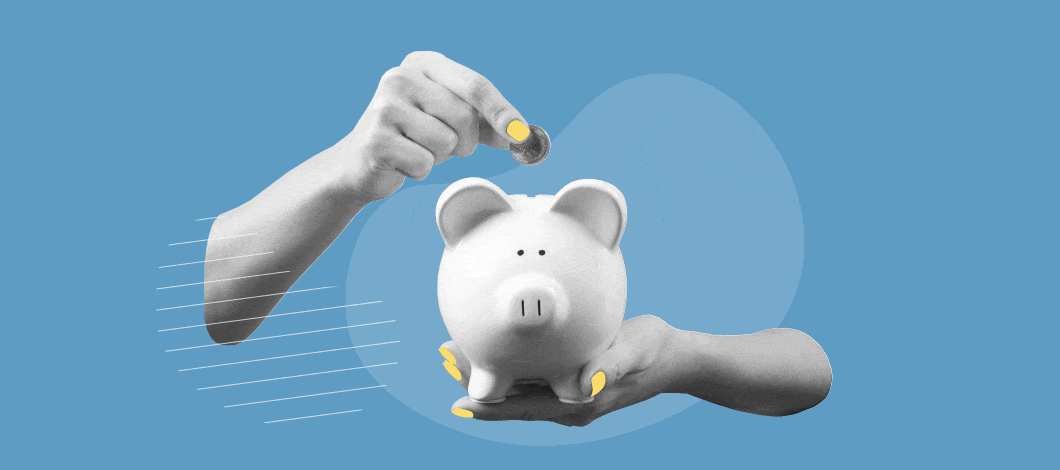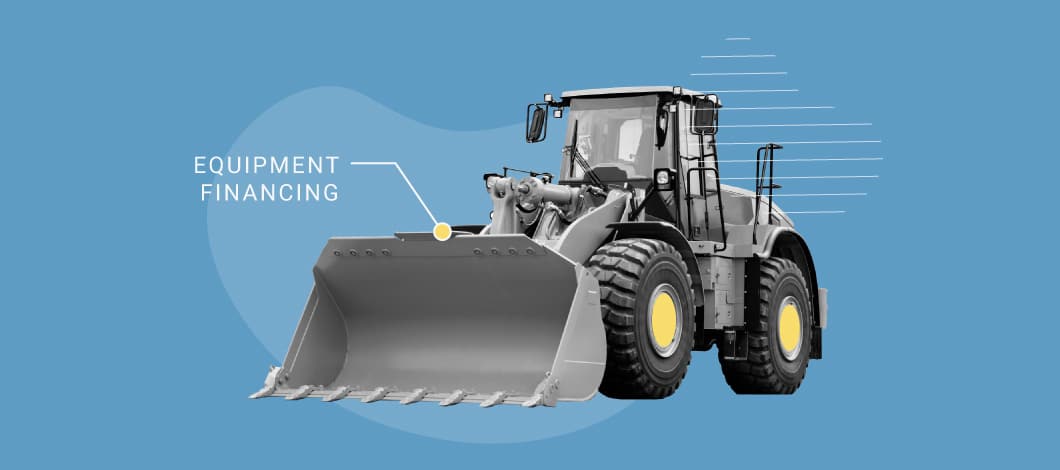Down payments for business loans vary depending on the type of financing. For instance, certain Small Business Administration (SBA) loans may require 10%-20% down, while online alternative financing products could require no down payment at all.
Here’s an overview of how much of a down payment is needed for business loans that are commonly sought.
| Type of Loan | Typical Down Payments |
| Invoice financing | 0% |
| Online alternative financing | 0% |
| Lines of credit | 0% |
| Equipment financing | 0%-20% |
| SBA 7(a) and CDC/504 loans | 10%-20% |
| Bank term loans | 10%-35% |
| Commercial real estate loans | 15%-35% |
Read on to find out why some loans require deposits (while others don’t), how down payments are determined and the ins and outs of each loan type.
Why Some Loans Require Down Payments
Lenders require business loan deposits for several reasons:
- When you put down a deposit, it demonstrates a commitment on your part. This helps persuade the lender that you’re serious about managing your finances and your business responsibly because you’ve invested some of your own money.
- Putting down a deposit shows you already have some financial resources available. This helps convince lenders you’re able to repay your loan.
- Offering a down payment provides your lender with some compensation in the event you default on your payments. This reduces the financial risk they’re taking on in extending you a loan.
- Providing a down payment lowers the total loan amount the lender needs to provide you (which could lower your installment payment).
How Down Payments Are Determined
How much of a deposit for a business loan a lender may require depends on several factors. Consider the following:
- Different types of loans have different deposit requirements.
- The purpose of your loan can affect whether you need a deposit.
- Loan providers have varying deposit policies.
- Down payments correspond with the amount of your loan, with higher loan amounts requiring higher deposits.
- Your business and personal credit scores can affect your deposit requirement, with lenders requiring higher down payments from borrowers with lower scores due to higher perceived risk.
- Collateral can sometimes be used to reduce or replace down payments.
Some or all of these factors may come into play when lenders set your deposit requirements.

Down Payments for Different Small Business Loans
The down payment required for business loan products varies by type of loan. Often, conventional forms of financing that don’t involve some type of asset as collateral, such as real estate, equipment or invoices, have higher standard deposit requirements.
Invoice Financing
Invoice financing, a type of accounts receivable financing, offers an alternative to traditional loans for borrowers whose business model involves extending credit to customers. Under this type of financing, a lender extends you a percentage of the value of your invoices upfront, and the invoices effectively serve as collateral for the funds you receive. Because of this, invoice financing does not require a down payment.
Online Alternative Financing
Online alternative financing typically comes with no down payment or collateral requirement, though a personal guarantee is often needed. Since these funding options are riskier for lenders, they tend to charge higher financing rates and have shorter repayment terms with more frequent payment installments.
Popular alternative lending products include:
- Short-term loans
- Merchant cash advances
- Working capital loans
Want to apply for no-down-payment financing?
SBA Loans
SBA loans represent one of the best loan options available for small businesses. These loans are offered by lenders who are approved by the federal agency. These lenders have agreed to cap interest rates at a set level in return for the SBA backing a percentage of their loans. This reduces risk to lenders, enabling them to offer better terms to borrowers.
7(a) Loan
SBA loans include a number of different loan programs. The SBA’s primary program, the 7(a) loan program, provides funding that can be used for general purposes, including covering working capital expenses, purchasing real estate or equipment or refinancing debt. Official guidelines for 7(a) loans don’t specify a minimum down payment requirement, but they do require owners to invest a reasonable amount of equity, leaving discretion to lenders as to what form this equity should take. In practice, lenders reportedly require down payments of 10%-20%.
CDC/504 Loan
Another popular SBA loan program is the Certified Development Company (CDC)/504 program, used for expanding or improving existing facilities or acquiring new buildings or equipment. Because collateral is involved, borrowers typically only make down payments of 10% on CDC/504 loans, though in some cases this may go as high as 15% or 20%.
Bank Term Loans
Conventional term loans are another major financing option for small businesses. As the name indicates, term loans are characterized by a set term length defining how long the borrower has to repay the loan. There are short-term loans (1 year or less), medium-term loans (1 year-3 years) and long-term loans (more than 3 years). Interest rates on term loans tend to be higher than SBA loans.
Down payment requirements on bank term loans can vary, but often, at least 20% down is needed, with larger loans requiring higher down payments.
Commercial Real Estate Loans
Loans for commercial real estate can be used to purchase, expand or improve existing properties. With this type of loan, the property being financed serves as collateral. If you default on your payments, your lender can claim your property and sell it to recover their losses.
Down payments for typical commercial real estate loans tend to be higher than their SBA CDC/504 counterparts. A down payment of at least 15%-20% is typical, with some lenders requiring up to as much as 35%.
Equipment Financing
Financing for commercial equipment can be used to lease, purchase or upgrade machinery and other business equipment, including technology items such as computers. Some commercial equipment leases, known as fair-market-value leases, come with the option of returning your equipment at the end of your lease term, buying it or renewing your lease.
Others, known as dollar-buyout leases, allow you to buy equipment at the end of your lease for $1. This type of lease often is used to finance equipment that will become technologically outdated by the end of the lease term.
The equipment being financed serves as collateral and can be seized if you default on payments. Because of this, most commercial equipment leases don’t require down payments. However, in some cases, such as if your equipment won’t be worth much at the end of your lease term, you may be required to make a down payment, which could be up to 20%.
Business Lines of Credit
A business line of credit works similar to a credit card. Your provider gives you access to an account with a set credit limit. You can withdraw money up to your limit and have it transferred to your business bank account. When you repay money into your account, it becomes available to spend again, an arrangement also known as a “revolving” line of credit.
Lenders extend lines of credit based primarily on your creditworthiness. Because this is the main qualification, business lines of credit generally don’t require deposits. Keep in mind, however, secured business lines of credit require collateral, while unsecured business lines of credit do not require .
Alternatives When You Don’t Have a Down Payment
Now that you know how much of a down payment for a small business loan you need, what happens if you don’t have that cash freely available? Here are a few options to consider that can help you finance your business needs.
Rollovers as Business Startups Financing
If you need funds to start a new business or invest in an existing one, rollovers as business startups (ROBS) can help. This program lets you use retirement savings from your 401(k) or IRA for business financing, penalty-free, though one-time and monthly administrative fees will likely apply. To qualify, you’ll need at least $50,000 in your retirement account.
Home Equity Loans
If you own a home, you can use the equity in your home as collateral for a loan. Keep in mind, however, that if you cannot make your payments, your lender could repossess your home to recoup its losses.
Home Equity Lines of Credit
You can also use the equity in your home to take out a line of credit. Similar to a business line of credit, you’re approved for a certain amount, but you’re only charged interest on the amount you use.
Your Down Payment Is an Investment in Your Business
While down payments can seem expensive in the short term, in the long term, they represent an investment in your business. The amount you offer as a down payment can help you secure a larger amount of money you can invest in expanding your business. Additionally, while some lenders have a minimum down payment, if you can afford offering more, it could lead to better loan terms.











